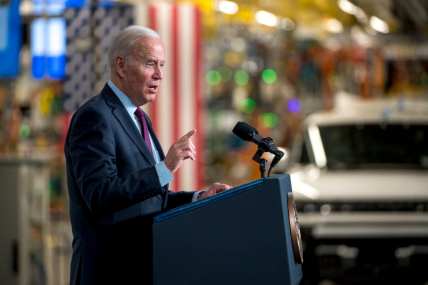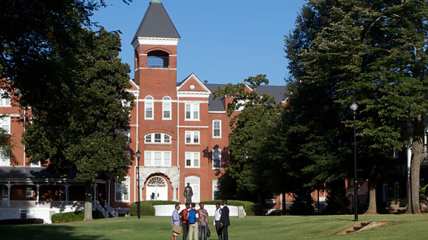HBCU presidents demand seat at the table as they push Congress for billions in BBB funding
"Those of us in the HBCU community can no longer simply sit on the sideline," Morehouse College President Dr. David A. Thomas told theGrio.
As Congress goes another day of inaction on passing the sweeping social spending bill that stands to invest billions into Historically Black Colleges and Universities (HBCUs), a collective of HBCU presidents are now getting into the political ring to advocate on behalf of their historically underfunded institutions.
More than 60 HBCU presidents sent a joint letter to the U.S. Senate urging the “swift passage” of President Joe Biden‘s Build Back Better Act — a bill that would provide billions of federal dollars to America’s historically Black institutions.
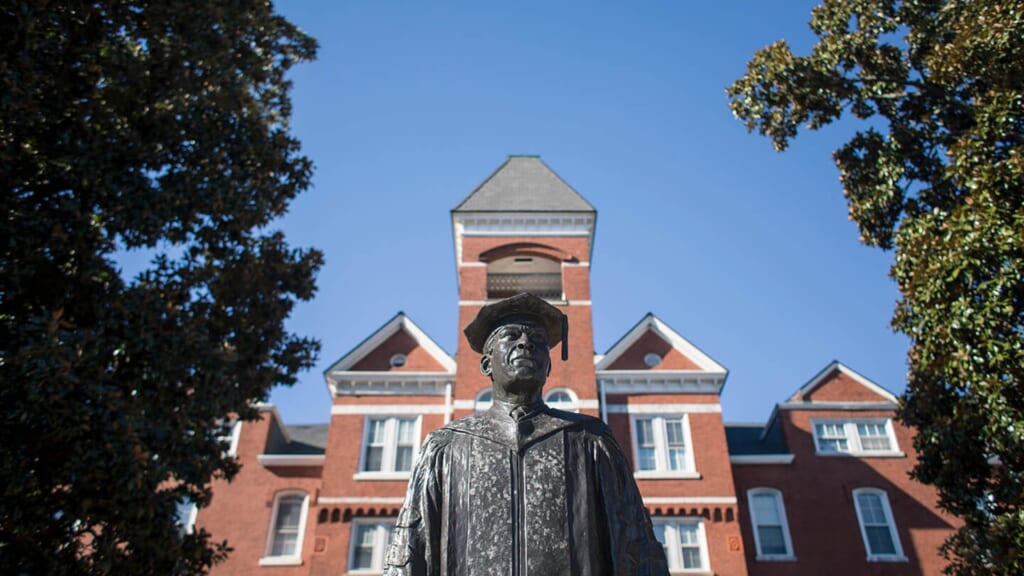
The letter, sent on Tuesday, is addressed to Democrat Senate Majority Leader Chuck Schumer of New York and Republican Senate Minority Leader Mitch McConnell of Kentucky, urging the two Senate leaders to “join the House of Representatives in supporting the Build Back Better legislation, which will take a critically necessary step toward addressing the historic disparities in funding and support for HBCUs.”
The collective of HBCU presidents and chancellors champion the BBB bill, which would provide significant investments in research and infrastructure development, tuition assistance, scholarship vouchers, cyber security workforce development and increased funding through Titles III and V.
The letter highlighted the accomplishments of HBCUs through the decades, having graduated nearly 20% of all Black students and contributing “nearly $16 billion to the GDP each year,” despite HBCUs making up only 3% of all colleges and universities.
Build Back Better, which was passed by the U.S. House of Representatives on Nov. 19 just before members went on Thanksgiving recess, is a $1.7 trillion social spending and climate bill that President Biden and Democrats have lauded as a framework to rebuild the middle class. In addition to investing $10 billion into HBCUs and other minority-serving higher education institutions, the BBB legislation provides sweeping investments in climate, health care, child care and more.
Dr. Tony Allen, chair of President Biden’s Board of Advisors on Historically Black Colleges and Universities, told theGrio that he sees the Build Back Better Act as “a significant down payment on what I think are historic inequities between HBCUs and our mainstream counterparts.”
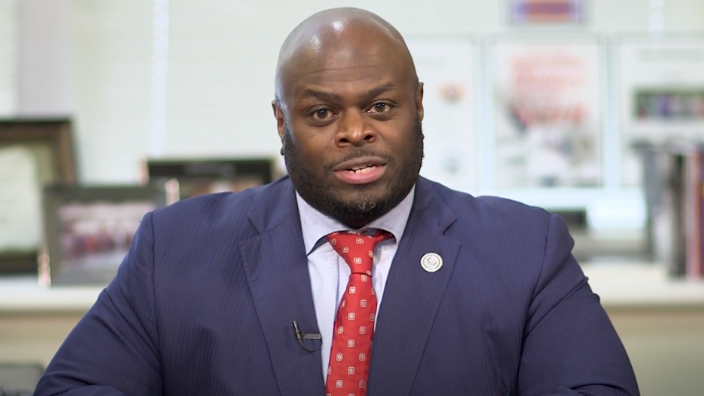
Dr. Allen, who is the president of Delaware State University in Biden’s home state, said that most of the priorities he outlined in a dear colleague letter sent when he started his post on the Board of Advisors in September are in the Build Back Better plan. “One was about physical infrastructure and support as it relates to our mainstream counterparts,” said Dr. Allen, who added that improving the research status of HBCUs and providing more resources for “students from low resource communities” are all areas that will receive federal investments if the legislation is passed.
Sen. Schumer is reportedly planning to bring Build Back Better to the Senate floor for a vote the week of Dec. 13, according to a report from The Hill. However, moderate Democrat Sen. Joe Manchin, who is a crucially needed vote in an evenly-split Senate, has yet to throw his support for bringing the bill to the Senate floor for a debate and subsequent vote.
Speaking on the joint letter sent to Sens. Schumer and McConnell’s desks, Morehouse College President Dr. David A. Thomas said it was about time that HBCUs take a more non-passive role in their relationship with Washington. “Those of us in the HBCU community can no longer simply sit on the sidelines and see what comes in fear that if we voice support in the direction of one side of the political aisle or the other we will somehow lose the level of support that we already get.”
Dr. Thomas added, “I think presidents of historically Black colleges in the past [have] been pretty silent in these moments of debate about the direction of our country from a policy standpoint. And it’s time for a change.”

President Biden has repeatedly vowed to lift up HBCUs through “historic” investments from his administration. The president had previously proposed allocating $45 billion for HBCUs and minority-serving colleges and universities. However, Biden’s proposal was significantly paired down as Democrats negotiated the funding in Build Back Better.
Dr. Allen said that President Biden has a “unique perspective on education” and noted that during the 2020 presidential campaign trail, he and Biden spent time talking about higher education and ways to better support HBCUs. “It’s not surprising that he’s continued his perspective and is not only asked me for thoughts [but] is really asking a whole set of what I would call proud HBCU graduates who have risen to significant expertise across a variety of disciplines.”
The Biden-Harris White House has made efforts to support HBCUs beyond its proposed investments through outreach, including holding monthly HBCU student journalist briefings at the White House. Previous briefings allowed HBCU student journalists to pose questions to senior Black members of the Biden administration, Cedric Richmond, senior advisor to the president and director of public engagement, and Karine Jean-Pierre, White House deputy press secretary.
It’s worth noting that HBCUs have also become more visible during the Biden-Harris administration considering one of its own produced America’s first Black woman vice president, Kamala Harris, who graduated from Howard University. Howard’s marching band escorted Harris during her inauguration earlier this year. Other HBCU graduates within the administration include Richmond, who attended Morehouse.

While the Biden-Harris administration is poised to laud its significant investments for America’s historically Black colleges and universities, HBCU presidents and leaders know there is more work to be done no matter what ultimately ends up being passed in the Build Back Better Act.
Dr. Thomas of Morehouse told theGrio he would like to also see federal Pell Grants doubled.
“The Pell Grant is a grant that goes to students, families who can’t afford to contribute $5,000 or less to their student’s college education … [At] Morehouse, 60% of our students fall into that category and at some HBCUs that number is 95%,” said Thomas. “To double the Pell Grant would put Morehouse in the reach of even more students and lower the burden that many of our students and their families take on.”
Dr. Thomas noted that pell grants could be used as discretionary funds to spend on fixing a leaking roof, for example — something that some of the funds earmarked in BBB for science research would not allow HBCUs to do, as those dollars are specifically targeted. Pell grants, Thomas said, would allow schools to “subsidize another student’s scholarship who doesn’t qualify for Pell, but his family is in a challenged financial situation, and, you know, the student is a straight-A student and is about to leave the college. I confront that every semester.”
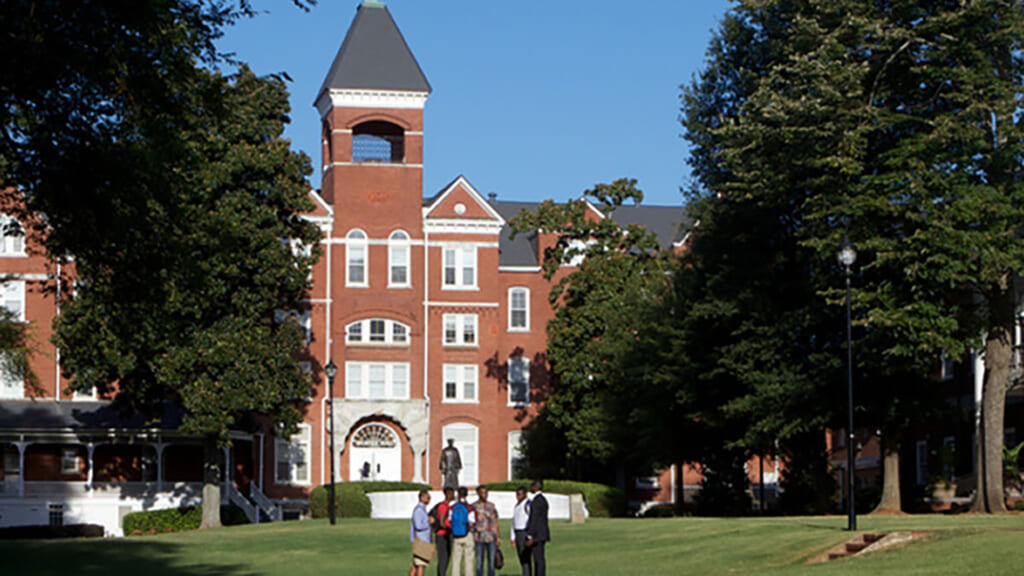
Dr. Thomas emphasized that the success for HBCUs moving forward lies in its ability to adapt to technology in the now and future. The former Harvard Business School professor highlighted steps Morehouse is taking to center tech and innovation, including launching the first globally accessible online degree program offered by a historically Black college. The college also recently partnered with Google’s Jigsaw to build a virtual reality training program to help combat police bias.
Funds from Build Back Better are significantly geared toward developing future STEM professionals and scientific research coming out of HBCUs.
Drs. Thomas and Allen say they are pleased with this first step from the Biden administration and Congress and say they look forward to continuing to build on their relationships in Washington to move HBCUs to the 21st century as they work to compete with their PWI (predominantly white institutions) counterparts, understanding their unique contribution to the American economy and workforce.
Dr. Allen noted a recent Wall Street Journal report that said “When it comes to [economic] mobility rates HBCUs outperform all other categories and are double the national rate, being the primary post-secondary driver for moving Black Americans from poverty to the middle class.”
“We have to shout it from the rooftops and be bold, which is one of the reasons we wanted to make sure that we were attaching our individual signatures on this letter, as we think it is again, a first step, but not the last,” said Allen. “And creating a more equitable future for all of us.”
Have you subscribed to theGrio podcasts “Dear Culture” or “Acting Up?” Download our newest episodes now!
TheGrio is now on Apple TV, Amazon Fire and Roku. Download theGrio.com today!
